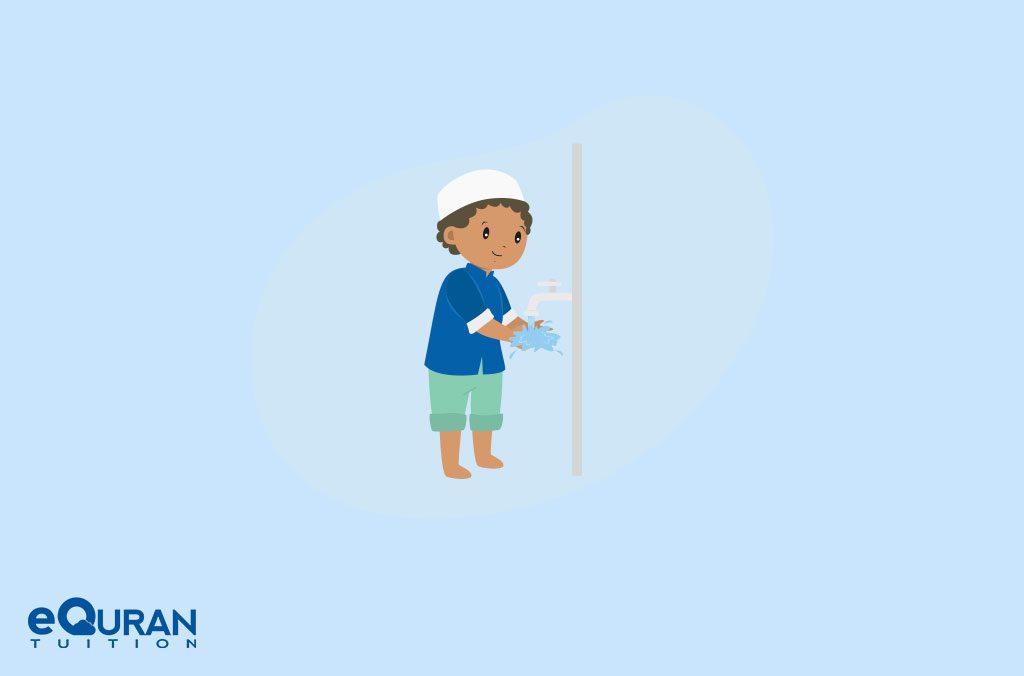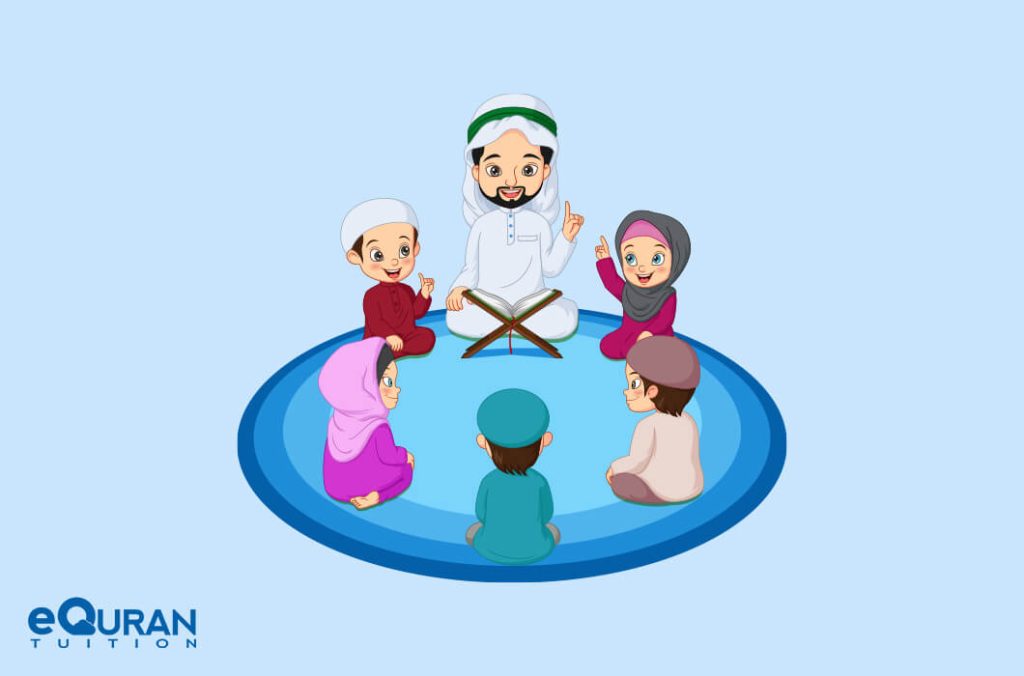
Wudu, also known as ablution or wudhu, is a fundamental ritual in Islam that involves the cleansing of certain parts of the body before performing acts of worship, such as prayer and the recitation of the Quran.
One of the most commonly discussed aspects of wudu in the Islamic tradition is its necessity before touching or handling the Quran.
This requirement has profound spiritual and practical significance. In this blog post, we will explore 12 key reasons why wudu is necessary to touch the Quran.
What is Wudu?
Wudu, also known as ablution, is a ritual purification process in Islam. It involves the washing of specific body parts, including the hands, mouth, face, arms, and feet, before performing acts of worship, such as prayer. Wudhu is considered a spiritual and physical cleansing that prepares Muslims for their connection with God.
The Significance of Wudu in Islam
Wudu, often regarded as a cleansing of the body and soul, holds a central place in a Muslim’s daily life. It serves as a means of preparation for various acts of worship, instilling a sense of purity and mindfulness. Now, let’s explore why wudhu is a crucial prerequisite when approaching the Quran.
Here’s a List of Reasons Why Wudhu is Important
Before we delve into the 12 compelling reasons why wudhu is necessary to read or touch the Quran,
1. Purity and Respect for the Word of God
The Quran is considered the literal word of God in Islam. Muslims hold it in the highest regard, treating it with immense respect and reverence. Wudu is seen as a means of physical and spiritual purification.
By performing wudu before touching the Quran, Muslims demonstrate their commitment to approaching the holy book with the utmost purity and respect. Just as one would clean oneself before entering a sacred space, wudhu serves as a symbol of inner purification before engaging with the divine guidance contained in the Quran.
2. Enhancing Concentration and Spiritual Connection
Wudu involves the cleansing of various body parts, including the hands, face, mouth, nose, and feet. This ritual purification not only cleanses the body but also helps clear the mind and soul.
When a person performs wudhu, they become more spiritually focused and prepared for prayer, recitation, or any other act of worship. By maintaining physical and spiritual purity through wudu, individuals can enhance their concentration and deepen their spiritual connection when interacting with the Quran.
3. Following Prophetic Tradition
The practice of performing wudu before touching the Quran is deeply rooted in the Sunnah, the teachings and actions of the Prophet Muhammad (peace be upon him). The Prophet emphasized the importance of cleanliness and purity in all aspects of life, especially in matters of worship.
Numerous hadiths (sayings and actions of the Prophet) narrate his practice of wudu before reciting or handling the Quran. By adhering to this tradition, Muslims are following the example of the Prophet and aligning themselves with his teachings and guidance.
4. Symbol of Reverence and Consciousness
Wudhu is a symbolic act of submission and humility before Allah (God). It is a reminder of one’s need for divine forgiveness and purification. When a person performs wudu before touching the Quran, it serves as a constant reminder of their reliance on Allah’s guidance and mercy.
This sense of reverence and consciousness helps individuals approach the Quran with a heart and mind that are open to receiving its wisdom and guidance. It reinforces the idea that the Quran is not just a book but a source of divine guidance that requires a humble and pure heart to fully comprehend and benefit from.
5. Protection of the Quran’s Sanctity
Wudu acts as a protective barrier to the Quran’s sanctity. Requiring individuals to perform wudu before touching the Quran, helps prevent the Quran from being casually handled or touched by those who may not be in a state of physical or spiritual cleanliness.
This requirement ensures that the Quran is treated with the utmost reverence and care, safeguarding its holiness and purity.
6. Promoting Regular Spiritual Practices
Wudu is not a one-time ritual but is performed multiple times a day, especially before each of the five daily prayers. Requiring wudhu before touching the Quran encourages regular spiritual practices.
When individuals perform wudhu regularly, it becomes a consistent part of their daily routine, reminding them of their religious duties and fostering a deeper connection with the Quran through repeated acts of purification.
7. Preventing Contamination
Physical cleanliness is essential in Islam, and wudu serves as a means to prevent physical contamination of the Quran. The hands and mouth, which are essential for handling and reciting the Quran, are cleansed during wudhu.
This prevents the transfer of impurities or harmful substances onto the Quran’s pages, ensuring its preservation and readability over time.
8. Strengthening Self-Discipline and Focus
Wudhu requires specific steps and mindfulness in its performance. By incorporating wudu into the process of touching or reciting the Quran, individuals are encouraged to exercise self-discipline and focus.
The act of performing wudu before engaging with the Quran reinforces the idea that this interaction should be a deliberate and meaningful one, encouraging believers to approach the Quran with the right mindset and intention.
9. Spiritual Preparation for Guidance
Wudu is not just a physical purification ritual; it also involves mental and spiritual preparation. As Muslims go through the process of wudu, they consciously cleanse their hearts and minds, preparing themselves to receive divine guidance from the Quran.
This mental readiness ensures that they approach the Quran with humility and receptivity, seeking understanding and enlightenment.
10. Symbol of Observation to God’s Commands
The requirement to perform wudu before reading the Quran is a clear demonstration of obedience to God’s commands. It is a reminder that as believers, they are bound to follow the instructions and guidelines set by Allah.
This act of obedience extends to the proper handling and engagement with the Quran, emphasizing the importance of adhering to religious teachings and practices.
11. Connection to the Spiritual Realm
Wudu is believed to elevate an individual’s spiritual state. By purifying themselves through wudhu, Muslims aim to create a closer connection to the spiritual realm, including the divine presence of Allah.
When they touch the Quran with the purity attained through wudhu, it signifies a connection between the physical world and the spiritual realm, emphasizing the sacredness of the Quran as a divine revelation.
12. Encouraging Reflection and Contemplation
Wudu is not a rushed or mechanical ritual; it is a deliberate and thoughtful process. By incorporating wudhu into the act of touching the Quran, Muslims are encouraged to take a moment for reflection and contemplation.
This pause in the routine serves as a reminder to approach the Quran with mindfulness, ensuring that they engage with its verses with a deeper understanding and appreciation.
Conclusion:
In conclusion, the necessity of performing wudu before touching the Quran encompasses a multitude of profound reasons deeply rooted in Islamic tradition and spirituality. It serves as a symbolic act of purification, an embodiment of Prophetic tradition, a shield against casual handling, and a means to foster regular spiritual practices.
Moreover, it promotes cleanliness, self-discipline, and a mindful approach to the divine guidance contained within the Quran, ultimately connecting believers to the spiritual realm while encouraging deep reflection and contemplation.
FAQs:
Q: Is Nail Polish Allowed During Wudu?
The permissibility of nail polish during Wudu can vary among Islamic scholars. Some argue that it creates a barrier, preventing water from directly contacting the nails, while others allow it if the polish is breathable or if it is removed before each prayer. It’s advisable to consult with a knowledgeable scholar or religious authority for guidance.
Q: Can I Perform Wudhu Without Wasting Water?
Islam encourages the conservation of resources, including water. It is possible to perform Wudhu while being mindful of water usage. The Prophet Muhammad (peace be upon him) emphasized using a minimal amount of water in ablution, even when there is an abundant supply.
Q: What If I Have a Cast or Bandage on a Body Part During Wudhu?
If you have a cast or bandage on a body part that would typically be washed during Wudhu, you can perform what is known as “Tayammum,” a dry ablution using clean earth or sand, as a substitute for washing that area. This is allowed in cases where using water would be harmful or impossible.
Q: Can I Perform Wudhu in Advance for Multiple Prayers?
While it’s permissible to perform Wudhu in advance of a prayer, it is essential to maintain your state of Wudhu (i.e., avoid actions that nullify it) until you actually start the prayer. If you break your Wudhu before starting a prayer, you will need to perform it again. Performing Wudu too far in advance may require rechecking for nullification.
Q: Can I Perform Wudhu in a State of Major Ritual Impurity (Janaba)?
Wudhu is a purification ritual performed to cleanse oneself before acts of worship, but it cannot be performed in a state of major ritual impurity (janaba). To attain a state of purity in such cases, one must first perform Ghusl (full body purification) before performing Wudu.

eQuran Tuition is your trusted online institute in the US for expert Quran learning with Tajweed, connecting you with experienced Quran tutors for a meaningful Quranic journey.




